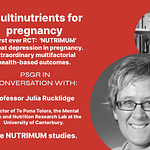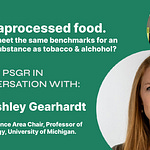This interview with Professor Jack Heinemann is essential listening for scholars, scientists & policy-makers interested in ethics, biotech, policy & the stewardship of biotech.
Jack Heinemann (PhD Molecular Biology (Oregon), BSc(hons) Biochemistry and Molecular Biology) is a Professor of Molecular Biology and Genetics, (School of Biological Sciences) at the University of Canterbury (UC); and Director, Centre for Integrated Research in Biosafety (INBI) UC.
Have you ever wondered about the ways new biotechnologies are speeding up, the efficiency of production increases, which inevitably increase tech output into the environment? How then do we judge risk?
The product is a hazard - but how does society (which includes governments and regulatory agencies) identify the potential for a hazard (the product) to cause harm? Harm is a complex equation of the potential to cause harm [x] where a technology can cause harm. Risk is not the same as hazard. This is why risk assessment is so important.
The potential for risk to scale up, what happens at scale - the scale gearing - is key.
'The more efficient our techniques become, the less dependent we are on the infrastructure of a laboratory to get what we intended to get. That efficiency is not the same thing as what most people would think of as precision.
Precision is substituted for the concept of efficiency. … We also decrease the number of things we didn’t want to get. But there’s no evidence for that. We always get unintended side reactions in any biochemistry in a gene technology technique.
The more often we use that technique - the more unintended effects we create.
Heinemann discusses complex scientific, & ethical issues critical for stewardship of biotech, including common assumptions & the dilemma of tech promises. It contains insight that can help look at risk with other, non-biotech technologies.
These issues are often neglected in public discussions. Yet how we steward technology impacts the potential for benefit or harm.
As Heinmann notes
'Where harm can accumulate at scale transition, that's precisely where regulation is a solution to mitigate risks... if we say the technique is inherently safe & no product has to be regulated, then I can use those techniques out in the field. By deregulating the hazard, which is the organism I intend to change, unless you have commensurate regulations on the process, you deregulate when & how people use these techniques.'
Governments and regulatory agencies are pivoting to deregulate some biotechnologies - but they’re not making a place for these sorts of conversations.
It’s time they did!
For the video version (& references) please go to YouTube, Rumble or Odysee.
The case study of null segregants forms an important background to the discussion.
Heinemann JA, Clark K, Hiscox TC, McCabe AW and Agapito-Tenfen SZ (2023), Are null segregants new combinations of heritable material and should they be regulated? Front. Genome Ed. 4:1064103. doi: 10.3389/fgeed.2022.1064103
For the video version (& references) please go to YouTube, Rumble or Odysee.
Published in 2024:
Hoepers AM et al 2024. Predicted multispecies unintended effects from outdoor genome editing. Ecotoxicology and Environmental Safety. Volume 282, 1 September 2024, 116707. doi 10.1016/j.ecoenv.2024.116707
If you are based in New Zealand please consider joining PSGR.org.nz and supporting us. PSGR is a registered charity.















Share this post